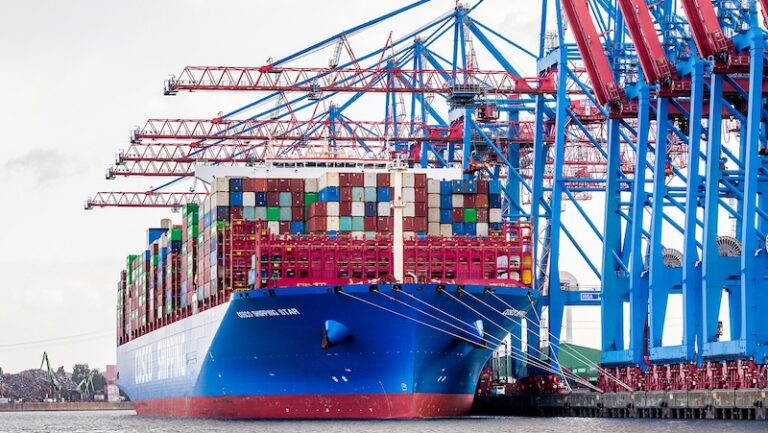
作者/Author(s): Francine McKenzie
網站來源/Source: War on the Rocks
日期/Date: 06/05/2025
關鍵字/Keywords: 經濟、貿易戰、關稅
摘要:
貿易戰已然爆發。雖然這並非首次貿易戰,但美國新的貿易政策已動搖了現有國際貿易體系的規則與準則。
- 貿易與關稅向來是國際政治爭端的根源之一。貿易作為連結國內外市場的橋梁,對一個國家的市場競爭、財富分配與全球影響力有顯著影響。此外,國家行為者經常將貿易作為推動其他目標的政治工具,例如結盟或大國競爭。因此,貿易問題始終是政治領袖關注的核心議題。
- 關稅存在多年,大多被作為保護特定產業的障礙工具,以協助擴張全球競爭力,最終建立高度發展的經濟體。當某些產業競爭力下降或出現需要保護的新產業時,各國(尤其是已開發經濟體)則常以非關稅措施介入。這些工具可確保國內經濟持續成長及進入國際市場。
- 貿易戰會對國內與國際的社會福祉、經濟與政治造成嚴重衝擊,所以《關稅暨貿易總協定)應運而生。
- 關稅暨貿易總協定的主要目標在於提升全球貿易量,加深國家間的相互依賴,以降低戰爭爆發的可能性。
- 然而,關稅暨貿易總協定過程中曾多次因惡意行為、抵制與談判僵局而陷入停滯,經過 47 年的八輪談判才結束。
- 各國政府雖希望透過關稅暨貿易總協定為本國民眾帶來最大利益,但最終大多會讓步,選擇降低或取消貿易壁壘,以防戰爭爆發。
- 美國不是自由貿易的忠實擁護者。
- 川普的新貿易政策放棄了美國在建立目前國際貿易體系和全球領導地位的角色。
- 在關稅暨貿易總協定談判期間,美國也曾實施保護主義政策,甚至曾與重要貿易夥伴發生衝突。
- 過往也有幾屆美國總統反對貿易自由化、擁抱保護主義,其他國家亦有類似行徑。
- 雖然美國已經不是第一次發動貿易戰,但世界仍不可輕視川普政府的動作。川普這場關稅戰爭否定了當前國際貿易體系的規範、程序與制度,並可能導致全球陷入經濟衰退。
Summary:
A trade war is here. While it is not a precedent, the U.S.'s new trade policies have upset the rules and norms that made the current imperfect trade system function.
- Trade and tariffs are constant sources of political discord among nations. Trade acts as a conduit between domestic and international markets, which affects market competition, wealth, and global influence. Furthermore, state actors use trade as a political instrument to advance non-trade objectives such as alliances or great power competition. Therefore, trade is a focus for political leaders.
- Tariffs are always present. They usually function as a barrier to protect specific sectors until they become globally competitive, creating highly developed economies. Countries, especially advanced economies, implement non-tariff barriers when some industries become less competitive or new sectors that require protection emerge. These tools ensure continuous domestic economic growth and access to international markets.
- Trade wars adversely affect domestic and international social well-being, economics, and politics, which is why the General Agreement on Tariffs and Trade (GATT) was established.
- The primary aim of GATT is to increase the global volume of trade and deepen interdependence among states, reducing the chances of war.
- However, the GATT, marred by bad faith, boycotts, and stalemates, was only concluded after eight rounds of negotiations over 47 years.
- Governments wished to maximize gains for their people through the GATT. However, they agreed to liberalize trade and make concessions by lowering or eliminating trade barriers to prevent war.
- The U.S. was not always a champion of free trade.
- Trump's new trade policy forsakes the U.S. role in creating the current international trade system and global leadership.
- During the GATT negotiations, the U.S. occasionally introduced protectionist policies or clashed with important trade partners.
- Some of his predecessors also opposed a more liberalized trade and upholding protectionism, but other countries also behaved similarly.
- The world should not be comfortable with Trump's trade war, although this is not the first, and there are lessons to be learned. Trump's tariff war denies the norms, processes, and rules of the current international trade system and could plunge the world into economic recession.
